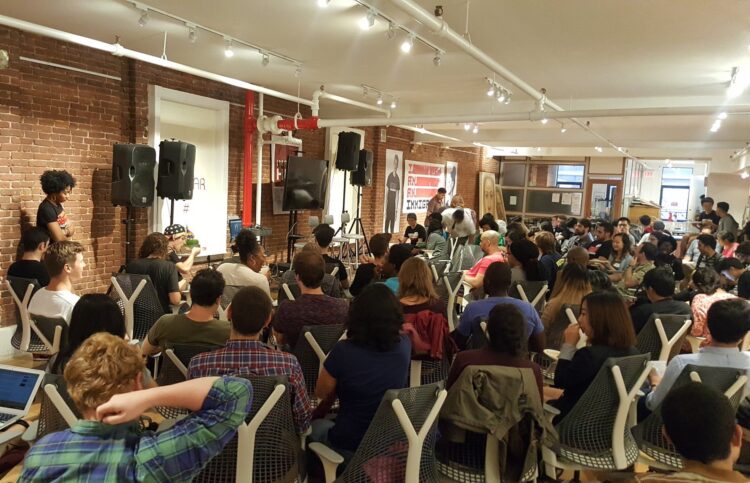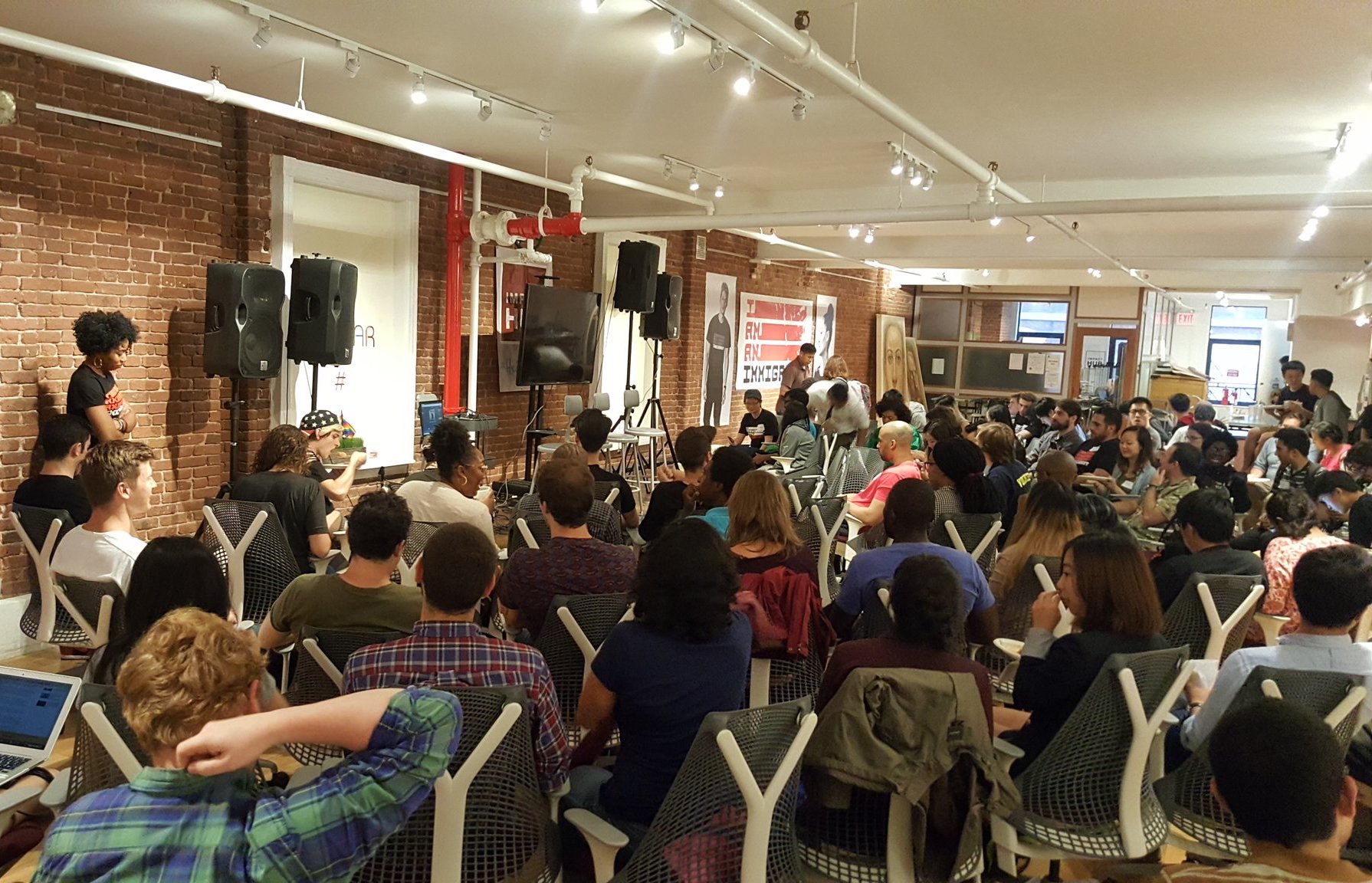The second annual I Stand With Immigrants Hackathon took place at Impact Hub in New York City recently. Hackers of various backgrounds and skill levels gathered and worked together to create tools, apps, and programs related to this year’s theme: allyship and how NYC stands with immigrants. The I Stand With Immigrants Hackathon was a rare instance where members of the tech community, immigrant community, and allies had a space to freely and openly discuss the immigrant experience and implement their ideas into valuable applications, platforms, and websites.
The Hackathon took place over two days. On the first day, participants enjoyed a Q&A from FWD.us president Todd Schulte, a keynote address on allyship, immigration, and NYC from Councilman Ben Kallos, and a panel dubbed “The Immigrant Experience in NYC. After cocktails and dinner, more than 115 hackers – more than double the amount as last year’s hackathon – the 13 teams settled in for a night of hacking.
Below is a recap of some projects and the results of the competition:
A group of six high school students won the first place title for their application U.S. Welcome. US Welcome is an augmented reality app that can detect images or objects and translate them for non-English speakers or people who may be interacting with the item for the first time. For example, users can point their phone camera at an MTA ticket machine and the app will explain what the machine is and how to use it. U.S. Welcome attempts to make the assimilation process easier, familiarize immigrants with U.S. technology, and break down barriers that keep immigrants from engaging with their communities.
Second place went to an SMS program called Junto created by Tina Haibodi, John Samuels, Shakil Rrafi, Alejandro Morales, Ishtiaque Mahdi, and M. Abedin. This group of students knows how difficult it is to study for exams while balancing their personal and work life – that is why they came up with Junto. Junto helps immigrants studying for their naturalization test study on the go. Junto sends daily text messages with sample questions that may appear on the U.S. Naturalization Test. The average immigrant works 40-60 hours a week and with personal responsibilities there is not much time left for studying. Junto tries to solve this problem while remaining accessible as a free SMS program.
Another notable application is Stat EZ, created by Qaio Joe Zhang, Kevin Cho, Frank C. and Kelly S. Lee. This app allows immigrants applying for Employment Authorization to enter their identification number and track the progress of their application. These hackers wanted to address the fact that after an arduous application process there is a serious lack of updates on the status of applications. In addition to checking the progress of their application, Stat EZ walks users through the applications progress and gives reliable estimations on how long the average application remains pending.
Gloria Chow, Michelle Ng, Jawharrah Cabral, and Jacqueline Lin developed the website The Immigrant Story to “break the bubbles that we live in” by exposing people to the shared experiences American born folks have with immigrants. The Immigrant Story tells each person’s unique story through a timeline with data visualizations showing the commonalities and connections between the groups of people interviewed by The Immigrant Story. The Immigrant Story also is creating a network of volunteers and services for immigrants, including legal assistance, job assistance, and housing.
Finally, SafeAsk was created as a web application for immigrants to seek anonymous legal advice. SafeAsk understands that immigrants are often afraid to seek legal advice due to the fear of outing themselves as undocumented and the lack of proper communication due to language barriers. SafeAsk seeks to solve this problem by allowing users to anonymously ask questions and receive answers from participating lawyers who will be able to communicate in their native language.




